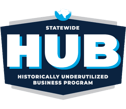Every hospital or healthcare facility is distinctive in two critical ways concerning hazardous drugs: their unique hazardous drugs list and how they communicate the safety information related to those drugs. Of course, there are regulations and requirements like USP <800> and NIOSH lists, etc., that dictate aspects of the list or the communication requirements, but outside of those standards, organizations have room to customize for their needs.
One of those unique needs is to identify and communicate safety protocols to protect healthcare workers from unintentional occupational exposure to “illicit drugs” or what other organizations refer to as “street drugs.” One customer within a law enforcement healthcare facility requested to add a “street drugs” category to their Rhazdrugs site. When a sheriff or other officer arrests someone who has drugs in their possession, the officer must know how to safely handle those substances to prevent exposure through touching, inhalation, mucous membrane contact, ingestion, or needle stick. Fentanyl is a growing concern but is just one of the many substances that can be deadly in these situations. Others include cocaine, methamphetamines, cannabinoids, cathinones, and other opioids such as heroin.
Within ERs or other acute care settings, this category is referred to as “illicit drugs.” Patients who come into an ER requiring immediate care often bring drugs with them, including blood pressure medicine, insulin, etc., which may not be on the hospital’s formulary. Patients could also be carrying illicit drugs, which the healthcare workers will have to address. To protect these healthcare workers from exposure to dangerous effects of exposure to hazardous drugs, including illicit drugs, they need an accessible platform to quickly and effectively communicate safety protocols at the point of care.
For instance, a customer shared that a patient arrived at the ER hugging a backpack and would not let it go. This patient needed a CT scan but refused to put the backpack down. A resident was able to access the backpack, and when they opened it, there was a white powdery substance inside. Without knowing precisely what the substance was, but suspecting an illicit drug, the healthcare workers faced unknown risks that could be extremely dangerous or even deadly.
According to the U.S. Department of Labor’s Bureau of Labor Statistics, in 2022, 839 worker fatalities were attributed to exposure to harmful substances or environments. This is a 5.1% increase, which they attribute to unintentional overdoses, which accounted for over 60% of the fatalities in this category.
As we’ve shared in the blog before, the CDC states that each year, 8 million healthcare workers are exposed to hazardous drugs at work, and that includes illicit drug exposure.
Washington State’s Workers Compensation Data shows a six-fold increase in workers’ compensation claims for inhalation exposure to illicit drugs between 2021 and 2022. Specifically, between 2017 and 2022, 107 workers filed claims related to illicit drug exposure.
The threat of exposure can also be a source of occupational stress, according to the CDC.
Healthcare workers must be able to quickly access safety information regarding which PPE they should use to prevent harmful exposure, like nitrile gloves or in the case of the powdery substance, the respiratory protection needed. Even knowing that the safety information is easily accessible could reduce stress and worry about occupational exposure.
Just as we customized Rhazdrugs to include illicit or street drugs for these customers, we can customize Rhadrugs to meet your organization’s specific needs when it comes to communicating hazardous drug safe handling resources.
If you’d like to know more about Rhazdrugs, check out this blog on cross-departmental safety communication, hazardous drug safety and environmental services and what this customer learned during the implementation of Rhazdrugs. As always, we’d love to provide a demo of Rhazdrugs to show you how easy it can be to get safety information in the hands of healthcare workers at the point of care.


